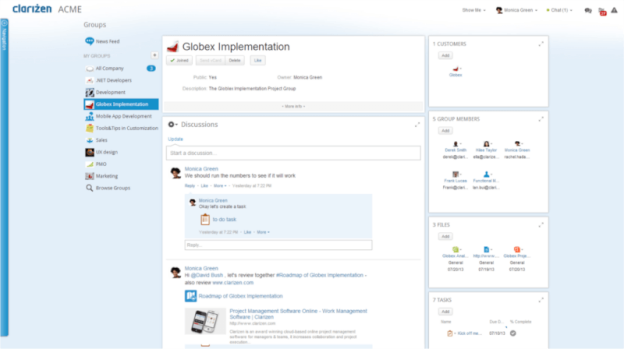Managing a business’s finances can be a daunting task, especially as the organization grows and becomes more complex. Financial management systems are essential tools that can help businesses of any size to manage and organize their financial data, streamline accounting processes, and gain visibility into their financial health.
In this article, we’ll delve deeper into the concepts of financial management systems, their advantages, types, and the process for choosing the right one.

Simply put, financial management systems are software tools that allow businesses to manage their finances. These systems provide users with the ability to track and analyze financial data, create budgets, forecast cash flows, and generate reports.
With the right financial management system in place, businesses can make informed decisions that will improve their bottom line. For more information about financial management systems, click this link https://www.workiva.com/en-hk/solutions/management-reporting.
One of the primary benefits of financial management systems is that they store an organization’s financial data in a secure, centralized repository. This allows all employees with access privileges to view the data and use it for decision-making purposes.
The system also provides users with the ability to easily view reports on income statements, balance sheets, and other important financial documents. Additionally, it can be used for accounting tasks such as billing customers or recording expenses.
Read Also:
There are several types of financial management systems available today, each designed for different purposes. One of the most common forms of financial management systems is accounting software, which helps automate many accounting processes such as accounts payable/receivable, invoicing, and payroll processing. Other types of financial management systems include budgeting software, financial planning software, and investment management software.
Choosing the right financial management system can be challenging, especially with so many different options available. Before selecting a financial management system, it’s essential to identify your financial goals and needs.
Are you looking for something more basic or do you need an advanced platform with all the bells and whistles? Knowing what kind of features and capabilities are important to you will help narrow down your selection of potential systems.
Once you’ve identified your financial goals and needs, it’s time to research different financial management systems. Look into their pricing structures, customer service ratings, user reviews, and any additional features they offer such as mobile access or bill payment integration.
After researching potential systems, it’s essential to test them out to see which one is the best fit for your business. Many financial management system providers offer free trials or demos, allowing you to see the system in action before making a purchase.
The most obvious advantage of financial management systems is that they can help reduce costs by automating tasks such as accounting, tax compliance, and payroll processing. Automation also reduces the chances for errors or omissions in important processes such as bookkeeping or budgeting since it eliminates manual input.
With the right financial management system in place, businesses can also benefit from improved business decision-making capabilities by having access to real-time information on their finances. Financial reports generated by the system provide a comprehensive view of cash flow and profitability, enabling managers to make better decisions about resource allocation and investments based on current market conditions.
In addition to cost savings and improved decision-making capabilities, financial management systems offer several other advantages. For example, they provide enhanced security for sensitive financial data, streamlined processes, and better accuracy.
In conclusion, financial management systems are essential for businesses of any size that want greater control over their finances. By choosing the right system and utilizing its features and capabilities, businesses can streamline accounting processes, make better decisions, and improve their bottom line. Whether you’re a small business owner or a CFO of a large corporation, a financial management